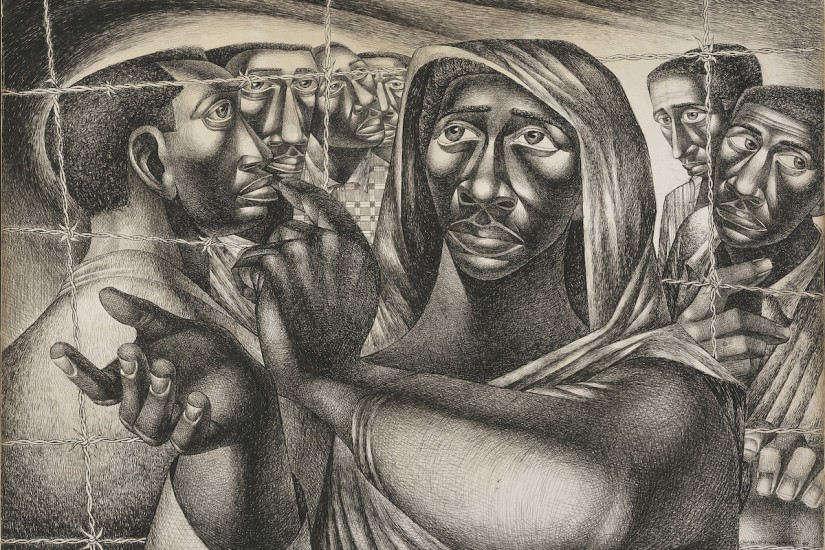The four-part docuseries When They See Us, directed by Ava DuVernay, has brought attention to the notorious case of the Central Park Five, a legal case that for many of us unfolded in living memory. The attention the docuseries brought to the case has inspired historians to make comparisons to other cases involving the legal frame-up of young Black men. Carl Suddler and Heather Ann Thompson have cited cases like the Scottsboro boys and the Harlem Six as examples. Thompson argues that these cases reveal that the American “criminal justice system is a proxy for white anxieties about blackness and brownness in America.” One of the cases Suddler specifically mentions is the Trenton Six, one that featured many of the same elements of the Central Park Five, including the targeting of a group of Black men with only precarious links to one another and the use of false confessions. It also features another element: the efforts and resistance of people and organizations to point out the regular use of police brutality and manipulation to control Black bodies and lives as well as to seek the exoneration of the men.
On January 27, 1948 in Trenton, New Jersey, William Horner and his wife were brutally attacked in their furniture store. William Horner would later die at the hospital; his wife Elizabeth claimed that three men were responsible for the attack. Another witness told the police he saw only two “light-skinned” Black men leave the building. Squads of police began monitoring Black neighborhoods, pulling men over and generally terrorizing people under the direction of Trenton’s director of public safety, Andrew J. Duch, who ordered that all Black men after dark be detained. By January 31, twenty men had been arrested. In the midst of this Collis English, a Navy veteran, was arrested on a complaint by his stepfather for using the family car without permission. His mother was told he would likely only be detained for an hour, but instead he never returned. Much like Korey Wise of the Central Park Five who only went to the station to support his friend, English’s brother-in-law, McKinley Forest, went to the police station to ask after him but did not return. During his detention, the police asked English what he did on January 27, and while being questioned, he mentioned his friends Ralph Cooper and “Buddy” Wilson. Later that day the police arrested Cooper at his friend Horace Wilson’s apartment, arresting Wilson as well. The police announced they had four men in custody for the murder, even after Elizabeth Horner could not identify them as the assailants.
